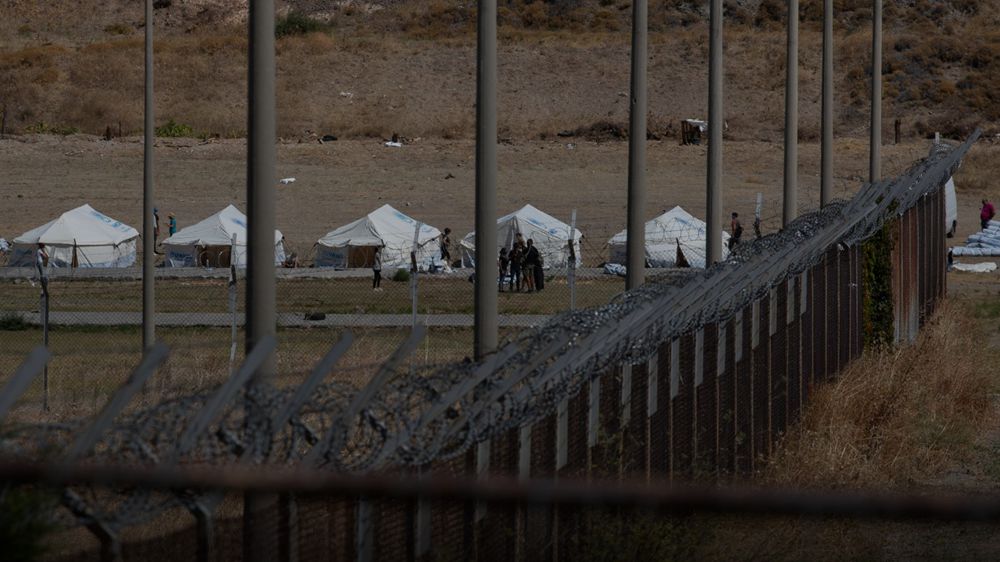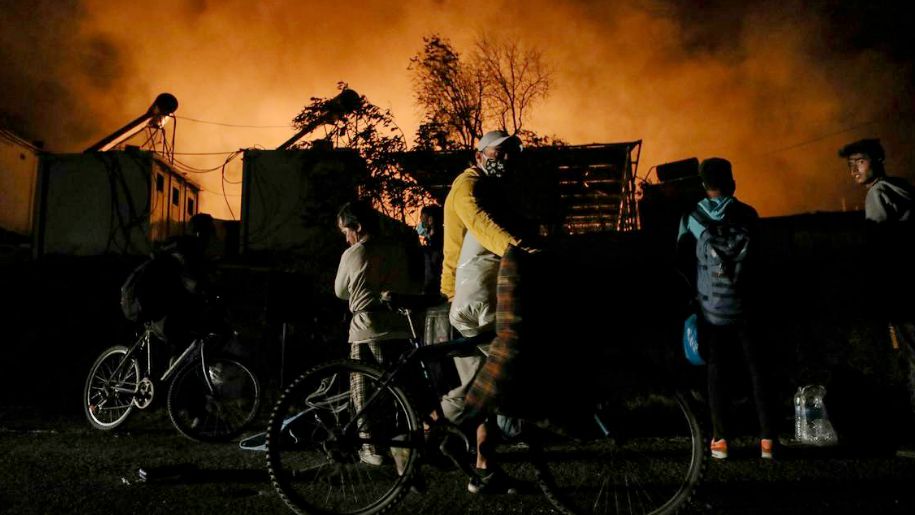
Tents are set up on a disused shooting range to accommodate refugees and migrants from the destroyed Moria camp following a fire, Lesbos, Greece, September 11, 2020. /Reuters
Tents are set up on a disused shooting range to accommodate refugees and migrants from the destroyed Moria camp following a fire, Lesbos, Greece, September 11, 2020. /Reuters
Greece began setting up tents on Friday for thousands of migrants left without shelter on the island of Lesbos after a fire destroyed the country's biggest refugee camp three days ago.
With more than 12,000 former occupants of the overcrowded Moria camp now camping out in fields and along roadsides without food or water and threatened by a possible spread of coronavirus infections, the need for a solution has become increasingly urgent.
But the Greek government has been forced to tread warily due to growing anger among residents of an island whose location a few miles off the Turkish coast has kept them on the frontline of Europe's migrant crisis for years.
"Moria is a monstrosity," said Dimitris Koursoubas, a senior official responsible for migration in the northern Aegean islands, adding the fire which destroyed the camp presented a "tragic opportunity" to find a new solution.
Hoping to avoid a repeat of protests seen earlier this year, island authorities have not said where the shelters are being set up but helicopters with tents and other materials could be seen landing a few miles from the main port of Mytilene.
Greek officials say they believe the fire in the Moria camp was deliberately lit by migrants reacting to quarantine measures after COVID-19 was detected in the camp last week.
But the emergency has once again highlighted Europe's patchy response to a multi-year crisis that has seen more than one million migrants reach its shores, often on board flimsy vessels and fleeing wars and poverty in the Middle East and beyond.
"The clock has run out on how long Europe can be without a migration policy. Now is the time to change this," Margaritis Schinas, the European commissioner responsible for migration and asylum policy, said at a press conference in Brussels.

Refugees and migrants carry their belongings as they flee from a fire burning at the Moria camp, Lesbos, Greece, September 9, 2020. /Reuters
Refugees and migrants carry their belongings as they flee from a fire burning at the Moria camp, Lesbos, Greece, September 9, 2020. /Reuters
France, Germany to take in Moria child migrants
German Interior Minister Horst Seehofer, speaking alongside Schinas, said France and Germany had agreed to take in most of some 400 minors who have been moved from Lesbos to the Greek mainland.
But there has been no wider agreement on resettlement and Greek authorities have refused any mass transfers off Lesbos.
"Life meets death here," said Eftychia Sougioultzi, a 64-year-old local woman, visiting a cemetery where her daughter is buried. "Yesterday I saw children sobbing, sleeping among the graves."
For the migrants, who are mostly from Syria and Afghanistan, the outlook is bleak.
"Moria finished," said Zohra, a 25-year-old Afghan woman. "We are two days on the road, no water, no food, very cold at night."
The World Health Organization said it was sending two emergency medical teams. Officials also said 200,000 rapid COVID-19 tests had been brought to the island to handle a possible upsurge in cases from the camp, which was placed under quarantine last week after a 40-year-old man tested positive.
Source(s): Reuters